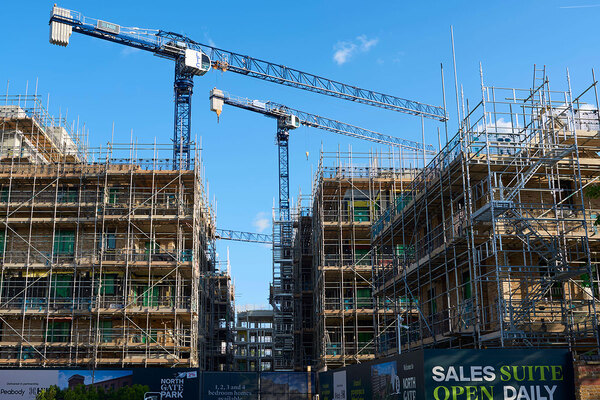You are viewing 1 of your 1 free articles
Housing association surpluses under scrutiny
The slashing of L&Q’s projected surplus raises questions for the whole sector, writes Emma Maier
Another week, another surpluses story. But this one is a little different.
After years dominated by record-breaking sector increases, the housing association with by far the largest projected surplus for 2018/19 has halved its forecast.
L&Q, which expected £342m this year, downgraded its estimates to £170m (before then pushing this back up to £190m in a note to investors yesterday).
The move is also a marked departure from recent years, when the organisation posted record surpluses of £348m in 2017/18, £332m for 2016/17, and £274m in 2015/16.
L&Q has the financial strength to weather the storm. But there is no mistaking that this will raise questions for the whole sector.
Surpluses have been increasingly debated.
"This will raise questions for the whole sector"
Some have condemned the idea of social purpose organisations stockpiling cash, others have been concerned about a reliance on market sale income, or that landlords might be making money from tenants.
In 2015, Communities and Local Government Committee chair Sir Clive Betts launched a parliamentary inquiry to investigate.
As these pages have argued, in England surpluses are a consequence of a low grant, low interest rate environment. Then-regulatory chair Julian Ashby concluded that they were necessary to subsidise new affordable homes and in attracting debt to build more.
That being the case, what does L&Q’s situation tell us?
The landlord cites a downturn in the property market and increased costs. It has referenced “unprecedented political and economic uncertainty” and said it is in “active discussions with government”.
Of the amount wiped off L&Q’s plan, £50m is attributed to reduced income from homes for market sale – a little under a third of the total.
Warning signs began in August last year, when a quarterly update reported that sales volume and revenue has fallen, and again in the half-year trading update.
This raises questions about the likely impact on other landlords operating in London, some of whom have started to see surpluses wobble.
A similar impact on private developers would be a blow to the delivery of homes and to the economy more widely.
L&Q also cites cost rises, particularly “health and safety, and improving the quality of our existing homes”.
In 2017, the association set aside £50m over three years for fire safety works in buildings. While some of the costs this year are likely to be related to fire safety, others relate to fixing problems at 15 schemes described as “challenging”.
Other organisations will share some of these issues as the focus on safety and quality continues.
Time will tell whether L&Q’s experience augers a wider surplus crisis. If it does, many organisations will be less well placed than L&Q to deal with the fall-out.
The impact of widespread surplus reductions is serious: fewer homes built, and fewer social and affordable rented homes.
For government, it raises questions about a policy direction that has eroded the counter-cyclical nature of social housing.
Asked by Inside Housing how government would support the sector to keep building through a recession, housing minister Kit Malthouse confirmed he would consider raising grant rates. That pledge may be put to the test.
Emma Maier, editor, Inside Housing
Housing association financial statements 2017/18
Click on the links below to read more reports about individual associations' financial statements:
A2 Dominion reports £92.5m surplus
Aster sees 12% jump in surplus despite margin drop
BPHA sees surplus jump after shared ownership sales boost
Clarion's surplus falls for second year running
Housing & Care 21 records increased surplus
Metropolitan sees surplus fall due to post-Grenfell costs
Midland Heart records £47.8m surplus
Network Homes surplus dips for the second consecutive year
Notting Hill and Genesis post reduced combined surplus
Optivo sees turnover fall in first results since merger
Orbit surplus boosted by jump in value of private rented units
Paradigm surplus drops after £5.6m loan breakage cost
Places for People boosts surplus to £130m
Southern sees dip in surplus due to pensions and safety costs
Sovereign boosts surplus thanks to open market sales
Stonewater increases surplus by 38%
Swan surplus slides after £3.2m cladding provision
Vivid posts increased surplus post-Merger
Related stories













